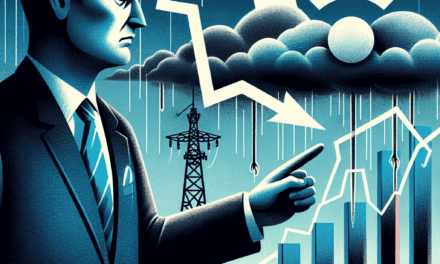“Navigate the Markets: Your Guide to Veterans Day 2024 Trading Hours”
Introduction
In 2024, the stock market holiday schedule includes specific observances that impact trading activities, one of which is Veterans Day. While Veterans Day is a federal holiday in the United States, it does not typically result in the closure of major stock exchanges such as the New York Stock Exchange (NYSE) and the Nasdaq. However, it is important for traders and investors to be aware of any modifications to trading hours or potential impacts on market activity due to reduced participation. Understanding the Veterans Day trading schedule is crucial for effective planning and strategy execution in the financial markets, ensuring that market participants are well-prepared for any changes in trading dynamics on this day.
Overview Of Stock Market Holidays In 2024
In 2024, the stock market holidays are an essential consideration for investors and traders who need to plan their activities around these non-trading days. Understanding the schedule of market closures can help in strategizing investment decisions and managing portfolios effectively. Among the various holidays observed by the stock market, Veterans Day holds particular significance, and its trading schedule warrants a closer examination.
The stock market in the United States, primarily represented by the New York Stock Exchange (NYSE) and the Nasdaq, follows a specific calendar of holidays during which trading is suspended. These holidays are typically aligned with federal holidays, ensuring that market participants have a clear understanding of when trading activities will pause. In 2024, the stock market will observe several holidays, including New Year’s Day, Martin Luther King Jr. Day, Presidents’ Day, Good Friday, Memorial Day, Independence Day, Labor Day, Thanksgiving Day, and Christmas Day. Each of these holidays results in a full-day closure of the stock market, allowing traders and investors to plan accordingly.
Veterans Day, observed annually on November 11th, is a federal holiday dedicated to honoring military veterans who have served in the United States Armed Forces. While it is a significant day of remembrance and gratitude, it is important to note that the stock market does not close for Veterans Day. This is a departure from other federal holidays, as the NYSE and Nasdaq remain open for regular trading hours on this day. Consequently, investors and traders can continue their activities without interruption, unlike on other holidays when the market is closed.
The decision to keep the stock market open on Veterans Day is rooted in historical precedent and practical considerations. Historically, the stock market has chosen to remain operational on Veterans Day to maintain consistency in trading schedules and to accommodate the global nature of financial markets. Given that many international markets do not observe Veterans Day, keeping the U.S. markets open ensures that American investors can engage in cross-border trading without facing unnecessary disruptions.
Moreover, the choice to keep the stock market open on Veterans Day reflects a balance between honoring the significance of the holiday and recognizing the needs of the financial community. While the day is dedicated to honoring veterans, the continuous operation of the stock market allows for the uninterrupted flow of capital and investment activities, which are vital to the economy. This approach underscores the importance of maintaining liquidity and market efficiency, even as the nation pauses to reflect on the contributions of its veterans.
In summary, the stock market holidays in 2024 include a range of federal holidays during which trading is suspended, providing investors with a clear framework for planning their activities. However, Veterans Day stands out as an exception, with the stock market remaining open for regular trading. This decision is informed by historical practices and the need to accommodate the global nature of financial markets. As investors navigate the year, understanding the nuances of the stock market holiday schedule, including the Veterans Day trading schedule, will be crucial for effective portfolio management and strategic decision-making.
Veterans Day: Historical Significance And Market Impact
Veterans Day, observed annually on November 11th, holds profound historical significance in the United States as a day dedicated to honoring military veterans who have served in the U.S. Armed Forces. Originally known as Armistice Day, it commemorated the end of World War I, which formally concluded on the eleventh hour of the eleventh day of the eleventh month in 1918. Over time, the day evolved to honor all veterans, reflecting the nation’s gratitude for their service and sacrifice. As such, Veterans Day is not only a time for reflection and appreciation but also a day that impacts various sectors, including the financial markets.
In the context of the stock market, Veterans Day presents a unique scenario. Unlike other federal holidays, such as Independence Day or Thanksgiving, Veterans Day does not result in a full market closure. The New York Stock Exchange (NYSE) and the Nasdaq remain open for trading, allowing investors to continue their activities without interruption. However, it is important to note that the bond market, governed by the Securities Industry and Financial Markets Association (SIFMA), observes a partial closure. This means that while equity markets operate as usual, bond markets may close early, typically at 2:00 PM Eastern Time, which can influence trading volumes and liquidity.
The decision to keep the stock markets open on Veterans Day is rooted in historical precedence and practical considerations. Given that Veterans Day does not always fall on a weekday, market participants have traditionally opted to maintain regular trading hours to ensure continuity and stability. Moreover, the global nature of financial markets necessitates a degree of consistency, as international investors rely on U.S. markets for guidance and liquidity. Consequently, the decision to remain open reflects a balance between honoring the holiday and maintaining market efficiency.
Despite the markets being open, trading activity on Veterans Day can be somewhat subdued. Many institutional investors and traders may choose to take the day off, leading to lower trading volumes and potentially increased volatility. This reduced participation can create an environment where price movements are more pronounced, as fewer trades can lead to larger swings in stock prices. Therefore, investors should exercise caution and be mindful of these dynamics when making trading decisions on Veterans Day.
Furthermore, the impact of Veterans Day on the stock market extends beyond the immediate trading environment. It serves as a reminder of the broader economic contributions of veterans and the defense sector. Companies involved in defense contracting, technology, and related industries often experience heightened attention during this period, as investors assess the implications of government policies and defense spending on their financial performance. This focus can lead to increased interest in stocks within these sectors, potentially influencing their market performance.
In conclusion, Veterans Day holds a unique position within the stock market calendar. While it does not result in a full market closure, its observance influences trading dynamics and investor behavior. As the nation pauses to honor its veterans, market participants must navigate the nuances of reduced trading volumes and potential volatility. By understanding the historical significance of Veterans Day and its impact on the financial markets, investors can make informed decisions and pay tribute to those who have served their country.
How Veterans Day Affects Stock Market Trading Hours
Veterans Day, observed annually on November 11th, is a significant day in the United States dedicated to honoring military veterans who have served in the U.S. Armed Forces. While it is a federal holiday, its impact on the stock market trading schedule is often a point of interest for investors and traders. Understanding how Veterans Day affects stock market trading hours is crucial for those involved in financial markets, as it helps in planning and strategizing investment activities.
Unlike some other federal holidays, Veterans Day does not lead to a complete closure of the major U.S. stock exchanges, such as the New York Stock Exchange (NYSE) and the Nasdaq. These exchanges remain open for regular trading hours on Veterans Day. This is in contrast to holidays like Independence Day or Thanksgiving, when the stock markets are closed entirely. The decision to keep the markets open on Veterans Day is rooted in the desire to maintain continuity in trading and to accommodate the global nature of financial markets, which operate across different time zones and regions.
However, while the stock exchanges remain open, it is important to note that the bond markets, including the Securities Industry and Financial Markets Association (SIFMA), observe a different schedule. On Veterans Day, the bond markets typically close early, often at 2:00 PM Eastern Time. This early closure can affect liquidity and trading volumes, as many institutional investors and traders who participate in both equity and bond markets may adjust their activities accordingly. Consequently, investors should be aware of these differences to make informed decisions and avoid potential disruptions in their trading strategies.
Moreover, the impact of Veterans Day on trading volumes and market activity can vary. While the stock markets are open, the holiday may lead to reduced participation from market participants, as some traders and investors may choose to take the day off in observance of the holiday. This can result in lower trading volumes and potentially increased volatility, as fewer participants can lead to wider bid-ask spreads and less price stability. Therefore, traders should exercise caution and consider these factors when planning their trades around Veterans Day.
In addition to the practical aspects of trading on Veterans Day, it is also a time for reflection and appreciation of the contributions made by veterans. Many financial institutions and companies take this opportunity to honor veterans through various initiatives and events. This cultural aspect of Veterans Day can influence market sentiment, as the recognition of veterans’ service may inspire a sense of patriotism and community among market participants.
In conclusion, while Veterans Day does not lead to a full closure of the stock markets, it does have implications for trading hours and market activity. The stock exchanges remain open, but the bond markets close early, which can affect liquidity and trading volumes. Investors and traders should be mindful of these factors and plan their activities accordingly. Additionally, Veterans Day serves as a reminder of the importance of honoring those who have served in the military, and this cultural significance can also play a role in shaping market sentiment. By understanding these dynamics, market participants can navigate Veterans Day with greater awareness and preparedness.
Comparing Veterans Day Trading Schedules Across Global Markets
In the realm of global finance, understanding the nuances of stock market holidays is crucial for investors and traders alike. Veterans Day, observed annually on November 11th in the United States, serves as a poignant reminder of the sacrifices made by military veterans. However, its impact on trading schedules varies across different markets worldwide. This article delves into the intricacies of Veterans Day trading schedules, offering a comparative analysis of how this holiday is observed in various global markets.
To begin with, the New York Stock Exchange (NYSE) and the Nasdaq, two of the most prominent stock exchanges in the United States, remain open on Veterans Day. This decision is rooted in the historical context of the holiday, which, while federally recognized, does not mandate a closure of financial markets. Consequently, trading activities continue as usual, allowing investors to engage in transactions without interruption. This approach underscores the importance of maintaining market liquidity and ensuring that investors have the opportunity to respond to market developments in real-time.
In contrast, other global markets adopt different stances regarding trading on Veterans Day. For instance, the London Stock Exchange (LSE) in the United Kingdom does not observe Veterans Day as a holiday, given its specific national context. As a result, trading proceeds without any alterations to the regular schedule. This highlights the localized nature of holiday observances and their impact on financial markets, as each country tailors its trading calendar to reflect its own cultural and historical significance.
Meanwhile, in Asia, the Tokyo Stock Exchange (TSE) also remains unaffected by Veterans Day. Japan, with its own set of national holidays, does not incorporate this American observance into its trading schedule. Consequently, the TSE operates as usual, providing investors with continuous access to the Japanese market. This consistency is vital for maintaining the flow of capital and ensuring that investors can make informed decisions based on the latest market data.
Similarly, the Hong Kong Stock Exchange (HKEX) does not recognize Veterans Day as a trading holiday. As a major financial hub in Asia, Hong Kong maintains its own calendar of public holidays, which does not include this particular observance. Therefore, trading activities continue unabated, reflecting the global nature of financial markets and the need for seamless operations across different time zones.
In Australia, the Australian Securities Exchange (ASX) also remains open on Veterans Day. The ASX follows a distinct set of public holidays that align with Australian cultural and historical events. As such, Veterans Day does not impact trading schedules, allowing for uninterrupted market access for investors in the region.
In summary, while Veterans Day holds significant meaning in the United States, its impact on global trading schedules is limited. The NYSE and Nasdaq remain open, reflecting the holiday’s non-mandatory status for market closures. Conversely, other major exchanges such as the LSE, TSE, HKEX, and ASX continue their operations without recognizing Veterans Day as a trading holiday. This divergence underscores the importance of understanding the specific holiday calendars of different markets, enabling investors to navigate the complexities of global trading with greater precision and insight. As financial markets become increasingly interconnected, awareness of these nuances is essential for making informed investment decisions.
Strategies For Investors During Veterans Day Market Closures
As investors navigate the complexities of the stock market, understanding the nuances of trading schedules, particularly during holidays, becomes crucial. Veterans Day, observed annually on November 11th, is one such occasion that prompts a shift in the regular trading schedule. In 2024, Veterans Day falls on a Monday, and while the stock market remains open, the bond market will be closed. This divergence in market operations presents unique opportunities and challenges for investors, necessitating strategic adjustments to optimize their portfolios.
To begin with, it is essential for investors to recognize the implications of the bond market closure on Veterans Day. The bond market, which includes U.S. Treasury securities, municipal bonds, and corporate bonds, plays a pivotal role in the financial ecosystem. Its closure can lead to reduced liquidity and potentially increased volatility in the stock market. Consequently, investors should be prepared for possible fluctuations in stock prices due to the absence of bond market activity, which typically acts as a stabilizing force.
In light of these conditions, one effective strategy for investors is to focus on equities with strong fundamentals. By concentrating on companies with robust financial health, stable earnings, and solid growth prospects, investors can mitigate the risks associated with increased volatility. Additionally, diversifying across various sectors can further cushion portfolios against market swings. This approach not only helps in managing risk but also positions investors to capitalize on potential gains when the market stabilizes post-holiday.
Moreover, Veterans Day provides an opportune moment for investors to reassess their long-term investment strategies. With the bond market closed, it is an ideal time to review asset allocations and ensure that portfolios are aligned with individual financial goals and risk tolerance. Investors might consider rebalancing their portfolios to maintain the desired level of diversification and to take advantage of any market inefficiencies that may arise during this period.
Another strategic consideration involves the use of limit orders. Given the potential for heightened volatility, employing limit orders can help investors execute trades at desired price levels, thereby avoiding the pitfalls of market orders that may be executed at unfavorable prices. This tactic is particularly useful during holiday trading sessions when market dynamics can be unpredictable.
Furthermore, investors should remain vigilant about macroeconomic indicators and corporate earnings reports that may be released around Veterans Day. These factors can significantly influence market sentiment and price movements. Staying informed about such developments enables investors to make timely and informed decisions, thereby enhancing their ability to navigate the market effectively during this period.
In addition to these strategies, maintaining a disciplined approach to investing is paramount. Emotional decision-making, driven by short-term market fluctuations, can lead to suboptimal outcomes. By adhering to a well-defined investment plan and focusing on long-term objectives, investors can better withstand the temporary disruptions that may occur during holiday trading sessions.
In conclusion, while Veterans Day in 2024 presents a unique trading environment due to the bond market closure, it also offers investors an opportunity to refine their strategies and strengthen their portfolios. By focusing on equities with strong fundamentals, reassessing asset allocations, utilizing limit orders, and staying informed about market developments, investors can effectively navigate the challenges and opportunities presented by this holiday. Ultimately, a thoughtful and disciplined approach will enable investors to optimize their investment outcomes during Veterans Day market closures.
Key Events To Watch Around Veterans Day In The Stock Market
As investors navigate the complexities of the stock market, understanding the schedule of market holidays is crucial for effective planning and strategy execution. Veterans Day, observed annually on November 11th, is one such holiday that can impact trading activities. In 2024, Veterans Day falls on a Monday, and while it is a federal holiday in the United States, the stock market operates under a unique schedule that investors should be aware of. Unlike some other federal holidays, the New York Stock Exchange (NYSE) and the Nasdaq Stock Market remain open on Veterans Day. This means that regular trading hours will be maintained, allowing investors to continue their trading activities without interruption. However, it is important to note that bond markets, including the Securities Industry and Financial Markets Association (SIFMA), typically observe Veterans Day, resulting in a closure of bond trading for the day. This divergence in market operations can lead to unique trading dynamics that investors should consider.
The continuation of stock trading on Veterans Day provides an opportunity for investors to respond to any market developments that may arise over the weekend. However, the closure of bond markets can lead to reduced liquidity in certain areas, potentially affecting the pricing and availability of fixed-income securities. Consequently, investors who are active in both stock and bond markets should plan accordingly, taking into account the potential impact on their portfolios. Furthermore, the period surrounding Veterans Day can be influenced by various economic and geopolitical events, which may affect market sentiment and trading volumes. As the holiday approaches, investors should pay close attention to key economic indicators, such as employment reports and inflation data, which can provide insights into the broader economic landscape. Additionally, any geopolitical developments or corporate earnings announcements during this time can also influence market movements.
In light of these factors, it is advisable for investors to adopt a proactive approach, staying informed about any news or events that could impact the markets. Utilizing tools such as economic calendars and market analysis reports can help investors anticipate potential market shifts and adjust their strategies accordingly. Moreover, engaging with financial advisors or market analysts can provide valuable perspectives and guidance during this period. As Veterans Day is a time to honor and reflect on the contributions of military veterans, it also serves as a reminder for investors to consider the broader implications of their investment decisions. Ethical investing, which takes into account environmental, social, and governance (ESG) factors, has gained prominence in recent years. Investors may use this time to evaluate their portfolios and consider aligning their investments with their values, supporting companies that demonstrate a commitment to social responsibility and sustainable practices.
In conclusion, while Veterans Day does not result in a closure of the stock market, it presents a unique set of circumstances that investors should be mindful of. The open stock markets, coupled with closed bond markets, create a distinct trading environment that requires careful consideration and planning. By staying informed about key events and adopting a strategic approach, investors can navigate the period around Veterans Day effectively, ensuring that their investment decisions are well-informed and aligned with their financial goals. As always, maintaining a long-term perspective and being adaptable to changing market conditions will serve investors well in achieving their objectives.
Preparing Your Portfolio For Veterans Day Market Changes
As investors navigate the complexities of the stock market, understanding the nuances of trading schedules becomes crucial, particularly around holidays. Veterans Day, observed annually on November 11th, is one such occasion that can impact trading activities. In 2024, Veterans Day falls on a Monday, and while it is a federal holiday in the United States, the stock market operates under a unique schedule that investors should be aware of to effectively manage their portfolios.
Unlike some other federal holidays, Veterans Day does not result in a full closure of the major U.S. stock exchanges, such as the New York Stock Exchange (NYSE) and the Nasdaq. However, it is important to note that the bond market, governed by the Securities Industry and Financial Markets Association (SIFMA), does observe a closure on this day. This divergence in market operations can lead to reduced trading volumes and liquidity in the stock market, as many institutional investors and traders who also participate in the bond market may take the day off. Consequently, individual investors should be prepared for potential fluctuations in stock prices due to these lower trading volumes.
To prepare for the Veterans Day market changes, investors should first review their portfolios and assess any positions that might be sensitive to short-term volatility. Stocks with lower average daily trading volumes may experience more pronounced price swings due to the reduced market activity. Therefore, it is advisable to evaluate whether any stop-loss orders or limit orders need adjustment to protect against unexpected price movements. Additionally, investors might consider postponing significant trading decisions until after the holiday, when normal trading volumes resume, to ensure more accurate price assessments.
Furthermore, it is beneficial for investors to stay informed about any corporate announcements or economic data releases scheduled around Veterans Day. While the stock market remains open, the timing of such announcements can still influence market sentiment and stock prices. By keeping abreast of these developments, investors can better anticipate potential market reactions and adjust their strategies accordingly.
Another aspect to consider is the impact of international markets, which do not observe Veterans Day. Global events and market movements can still affect U.S. stocks, especially those with significant international exposure. Investors should monitor global news and market trends to understand how these factors might influence their portfolios during the holiday period.
In addition to these strategic considerations, investors should also take this opportunity to reflect on their long-term investment goals. Holidays like Veterans Day provide a moment to step back from the day-to-day market fluctuations and reassess one’s investment strategy. This reflection can help ensure that the portfolio remains aligned with the investor’s risk tolerance and financial objectives.
In conclusion, while Veterans Day does not result in a complete shutdown of the U.S. stock market, its observance does lead to unique trading conditions that investors must navigate. By understanding the implications of reduced trading volumes, staying informed about relevant announcements, and considering the influence of international markets, investors can effectively prepare their portfolios for any changes that may arise. Ultimately, a thoughtful approach to managing one’s investments around Veterans Day can help mitigate risks and capitalize on opportunities, ensuring a well-positioned portfolio for the future.
Q&A
1. **Is the stock market open on Veterans Day 2024?**
The stock market is open on Veterans Day, which falls on Monday, November 11, 2024.
2. **Are there any changes to trading hours on Veterans Day 2024?**
No, the stock market operates on its regular trading hours on Veterans Day.
3. **Is the bond market open on Veterans Day 2024?**
The bond market is closed on Veterans Day 2024.
4. **Why does the stock market remain open on Veterans Day?**
Veterans Day is a federal holiday, but the stock market chooses to remain open as it is not a mandatory market holiday.
5. **What are the regular trading hours for the stock market?**
The regular trading hours are from 9:30 AM to 4:00 PM Eastern Time.
6. **Are there any pre-market or after-hours trading sessions on Veterans Day 2024?**
Yes, pre-market and after-hours trading sessions are available as usual on Veterans Day.
7. **How can investors plan for trading on Veterans Day 2024?**
Investors should be aware that while the stock market is open, the bond market is closed, which may affect trading volumes and liquidity.
Conclusion
In 2024, Veterans Day falls on Monday, November 11. The U.S. stock markets, including the New York Stock Exchange (NYSE) and Nasdaq, will remain open on Veterans Day, as it is not a federal holiday that affects trading schedules. However, the bond markets, governed by the Securities Industry and Financial Markets Association (SIFMA), typically observe a closure or early close on Veterans Day. Investors should be aware of these differences in market operations to plan their trading activities accordingly.





